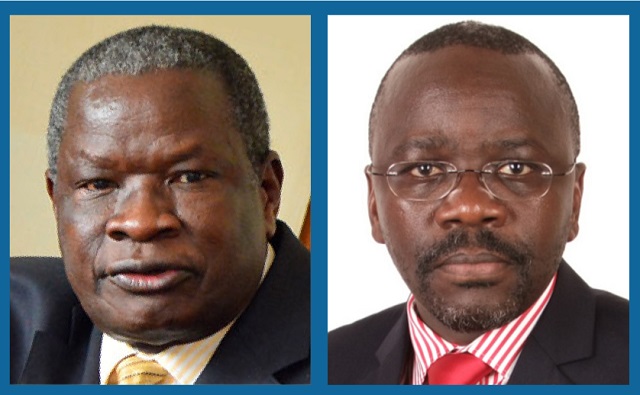
Minister of state for Internal Affairs Obiga Kania told The Independent that validation was just about retrieving data.
“If they registered successfully in the first place, then this is just simple documentation.”
To Kania, those who were saying the process was tedious have problems with their organisation’s structures.
“This was a question of putting all documents together and you send by email.”
Kania rejected the request of NGO bosses who wanted the verification exercise to be extended beyond the one month period.
Local NGOs a problem
Stephen Okello, the Interim Executive Director of the National NGO Bureau says the NGO Bureau is in the process of creating a proper regulatory framework for NGOs. He says the data gathered can now be used by cabinet, parliament, embassies, and the general public.
“This is not a sudden exercise,” he told The Independent, “Over the years we have put together the policy, the Act and other regulations.”
Okello dismisses the view that the data demands on NGOs were intrusive. He says the function of regulation requires all the demands they made on NGOs.
“We want to have a comprehensive database where we can tell the exact contribution of NGOs to the country in financial and other terms,” he said.
He said the NGO Bureau requires updated information on the exact number of NGOs because some quietly close either because they run out of money or they became redundant. He explained that information on the number of Ugandans and foreigners employed is essential in determining which NGO pays what amount of taxes and deductions for NSSF contributions.
Okello says indigenous NGOs are not like their international counterparts.
“When the international ones are closing they will come and tell you but the local ones will just close shop and that is it,” he says.
He said when when the verification was first announced, international NGOs hurried to complete the exercise while the indigenous ones were already counting on an extension.
“‘This is Uganda’, they will probably extend,” Okello quoted local NGOs saying.
He says the Bureau opened call centres to coordinate the exercise and their staff worked late in the night on deadline day to complete the exercise.
Still, many NGO were not validated. One young man who runs an NGO about youth empowerment told The Independent that he only learnt about the validation exercise on Sept. 13, almost a week after it ended. The man who did not want his organisation named for fear of jeopardising its operations said he will inquire on how to get the validation of his NGO done.
For others like Cissy Kagaba, executive director of Anti-Corruption Coalition Uganda (ACCU), the validation process was an unnecessary bother.
Kagaba told The Independent that every year her NGO files returns with the NGO Bureau which has information the bureau was collecting. Like other NGO heads, she says the demand for new details; including what people earn, was intrusive.
“There is nothing to hide but it could be a violation of a fiduciary relationship with employees,” she said.
“I think the state wastes a lot of energy on going after NGOs. Their claim is fighting money laundering yet there are glaring incidences of this going on in the economy,” she added.
Kagaba argues that NGOs regularly submit audit reports, annual work plans on top of there being an enabling law for what they should file, NGO Act, 2016.
“It is puzzling that they would ask questions like how old is so and so. Some of the information could be got by writing to our donors,” she says.
On the timing of the validation and when FIA wrote to NGOs like ACCU, Kagaba says it could be part of the plot to tighten the squeeze on NGOs.
“It can create more suspicion given those circumstances,” she said.
****
 The Independent Uganda: You get the Truth we Pay the Price
The Independent Uganda: You get the Truth we Pay the Price



